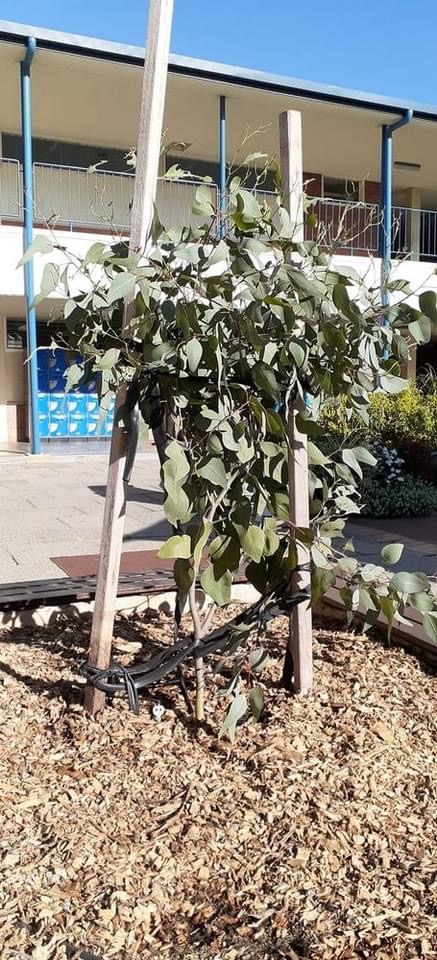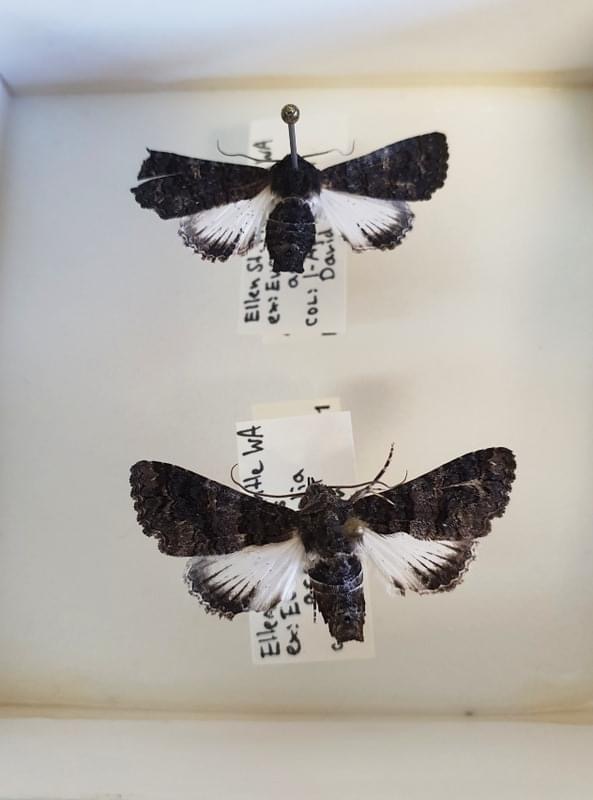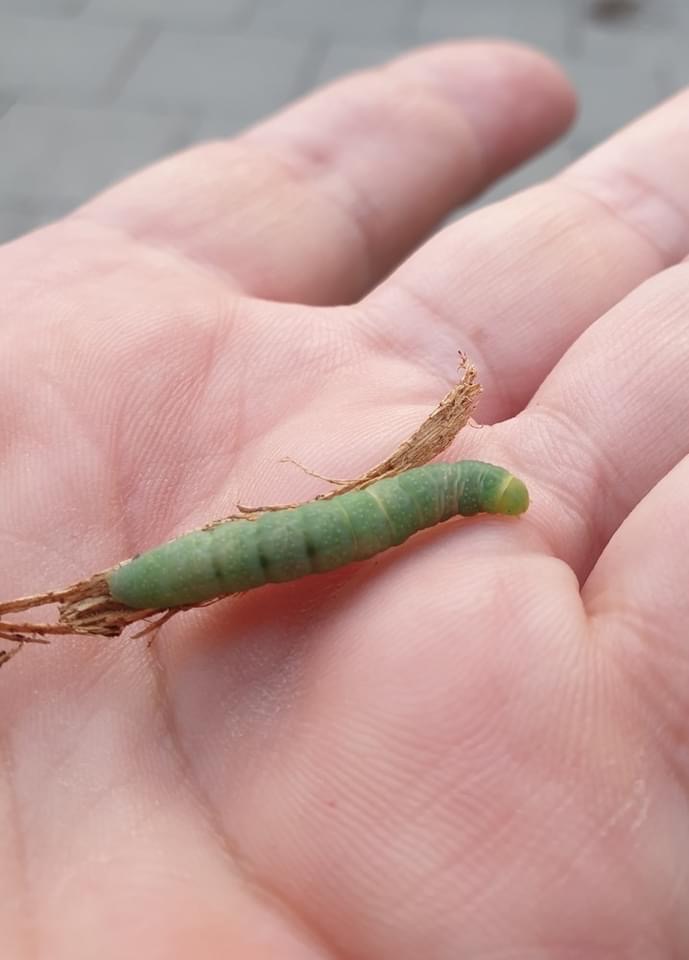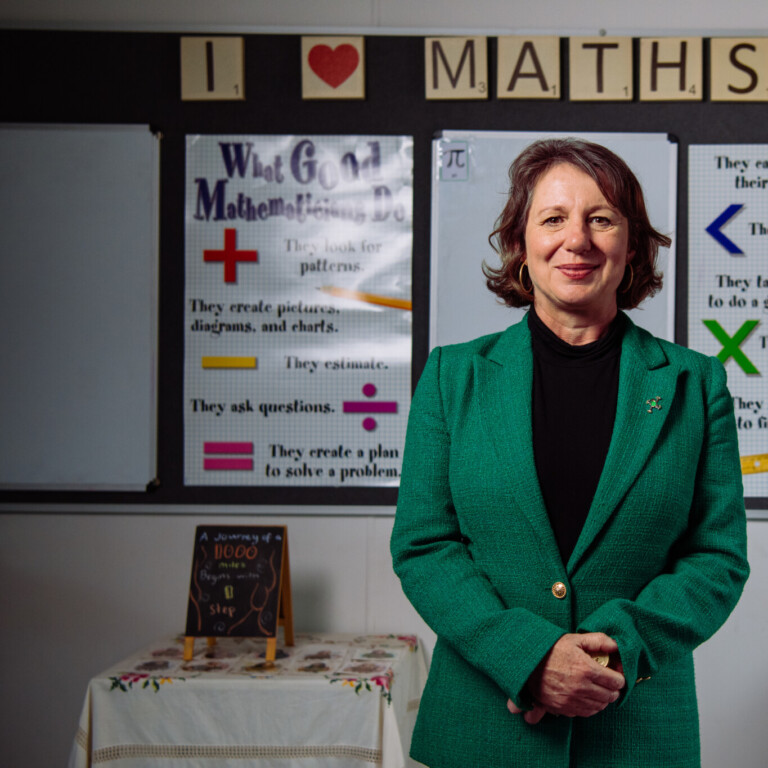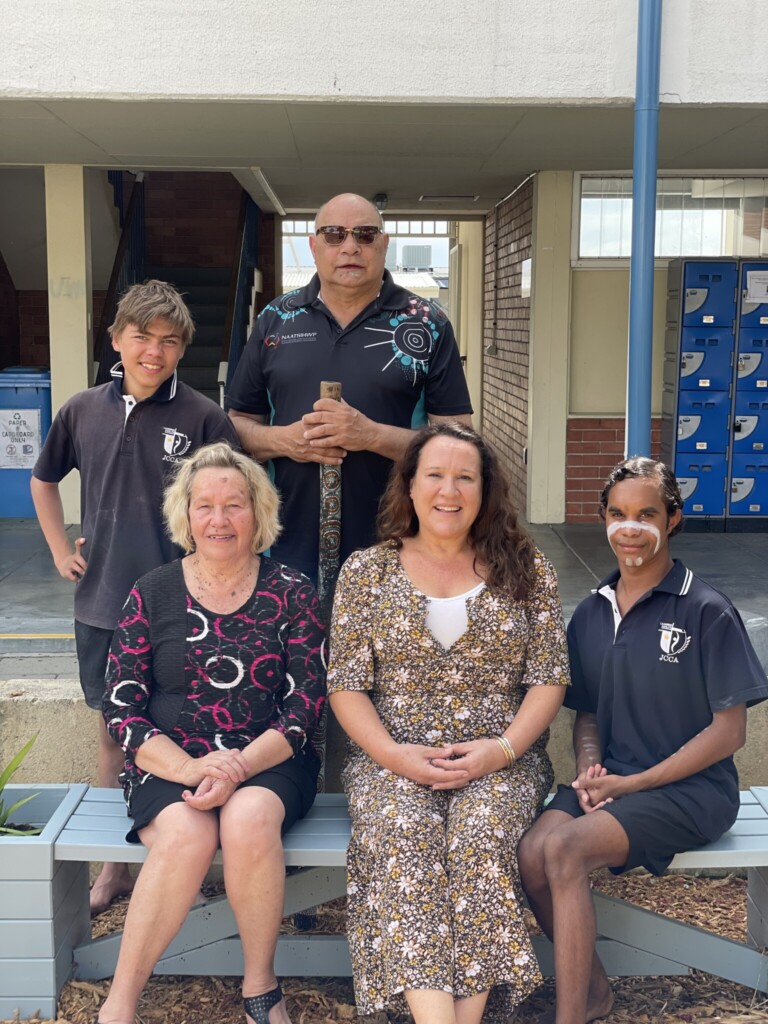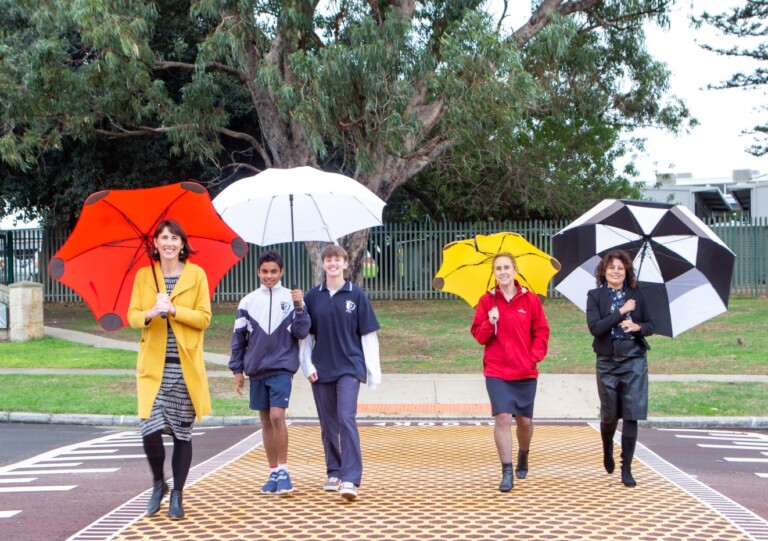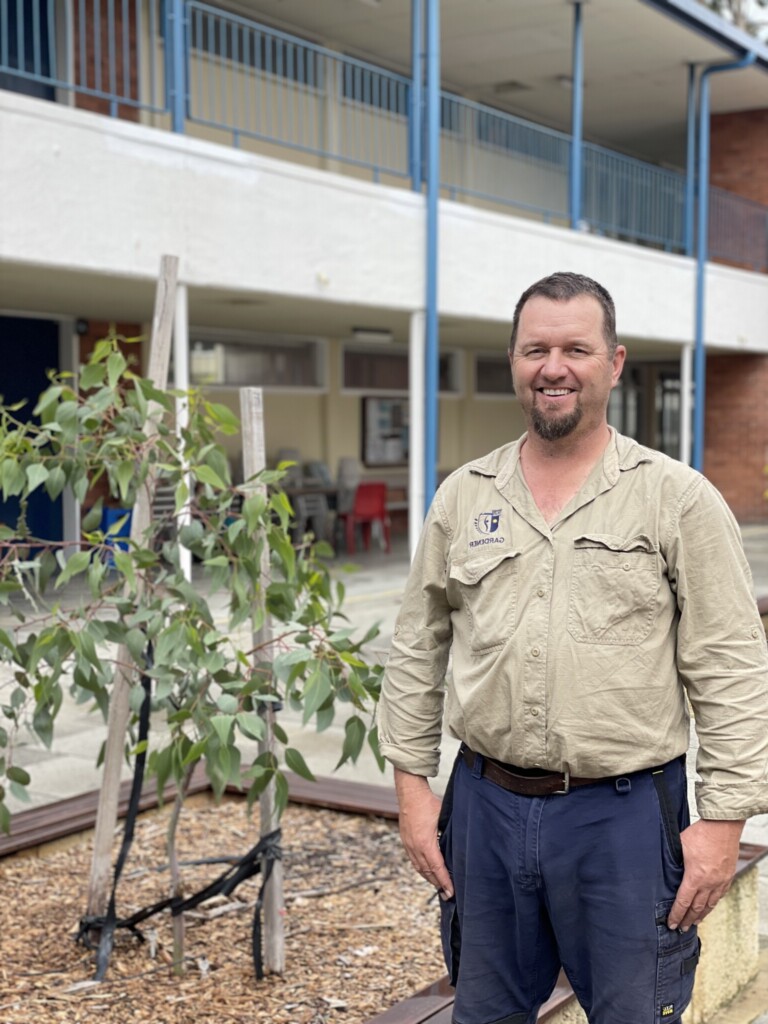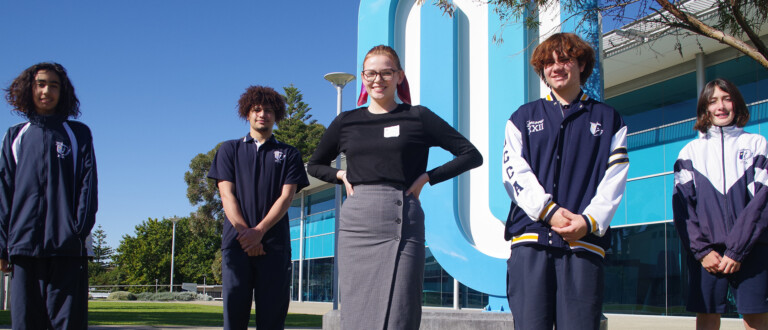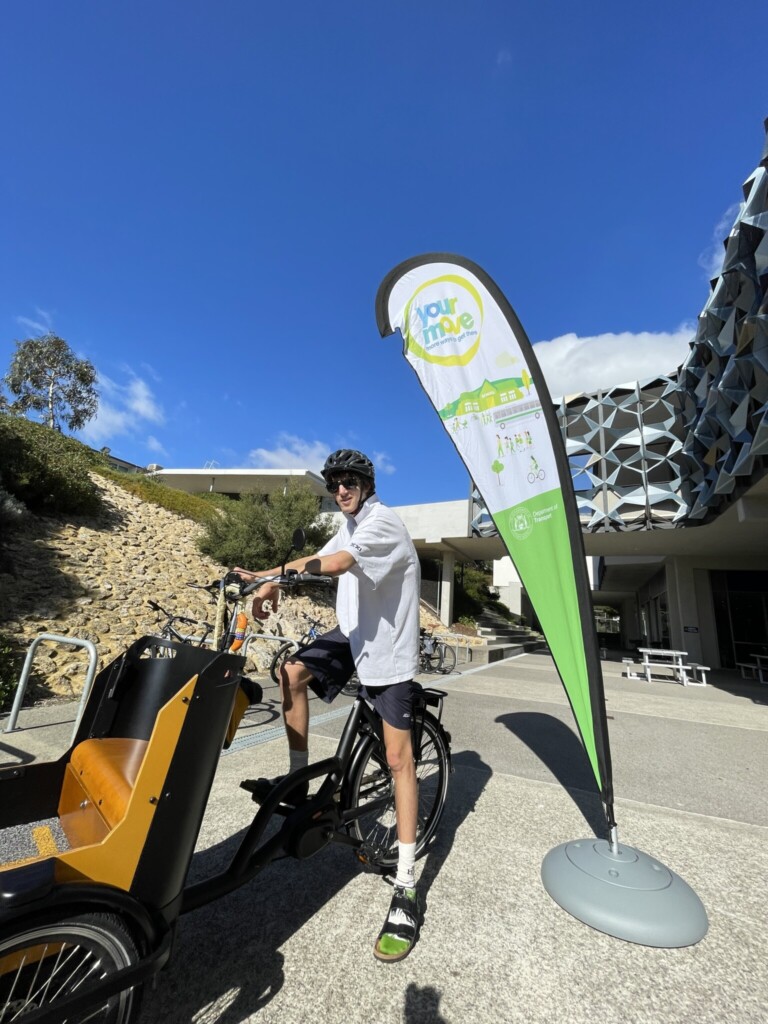“A moth species that hasn’t been recorded in the Perth area for more than 100 years was recently discovered at John Curtin College of the Arts on an endangered Eucalypt.
David Blyth, Head Groundskeeper at John Curtin College of the Arts made the discovery, which is only the second recorded finding in the Perth area, the previous dating back to 1920.
“Last year the college’s Roots and Shoots Club and home economics department worked with the environmental community organisation, APACE to establish a native/edible garden and in the process we planted a threatened Eucalyptus argutifolius called ‘Jane’ in its own planter box,” he said.
“Recently I saw that the Eucalypt was being attacked by a caterpillar that I had never seen before.”
“We submitted caterpillar samples through the DPIRD My Pest Guide Report and when the caterpillars pupate they were identified as Pataeta carbo,” he said.
Cameron Brumley, Entomology Diagnostician with the Department of Primary Industries and Regional Development curates the Department’s large insect reference collection and confirmed that the Pateata carbo moths have not been recorded in the general Perth area in more than 100 years.
“The moths have been databased and added to the collection, and indeed they were the first new additions for the species for quite some time,” he said.
“There is only one other representative from the Perth area, and that dates back to approximately 1920.”
“While it is quite a widespread species, it is always great to have fresh material to expand the collection, as it also serves as a store of biodiversity and biosecurity knowledge for the state,” he said.
David works with students across the college sharing his knowledge about sustainability and biodiversity.
“I am really passionate about educating the students about conservation, and I regularly hold walking tours to teach them about the endemic species on the grounds,” he said.
David’s latest project has been working with students from the Design and Technologies Department on STEM hydroponics and aquaponics projects in a new ‘outdoor classroom’ initiative.
He also works with students from 4LifeSkills, a disability support provider, teaching them landscaping and is collecting saplings of endangered Eucalypts to donate to the Town of Mosman Park.”
